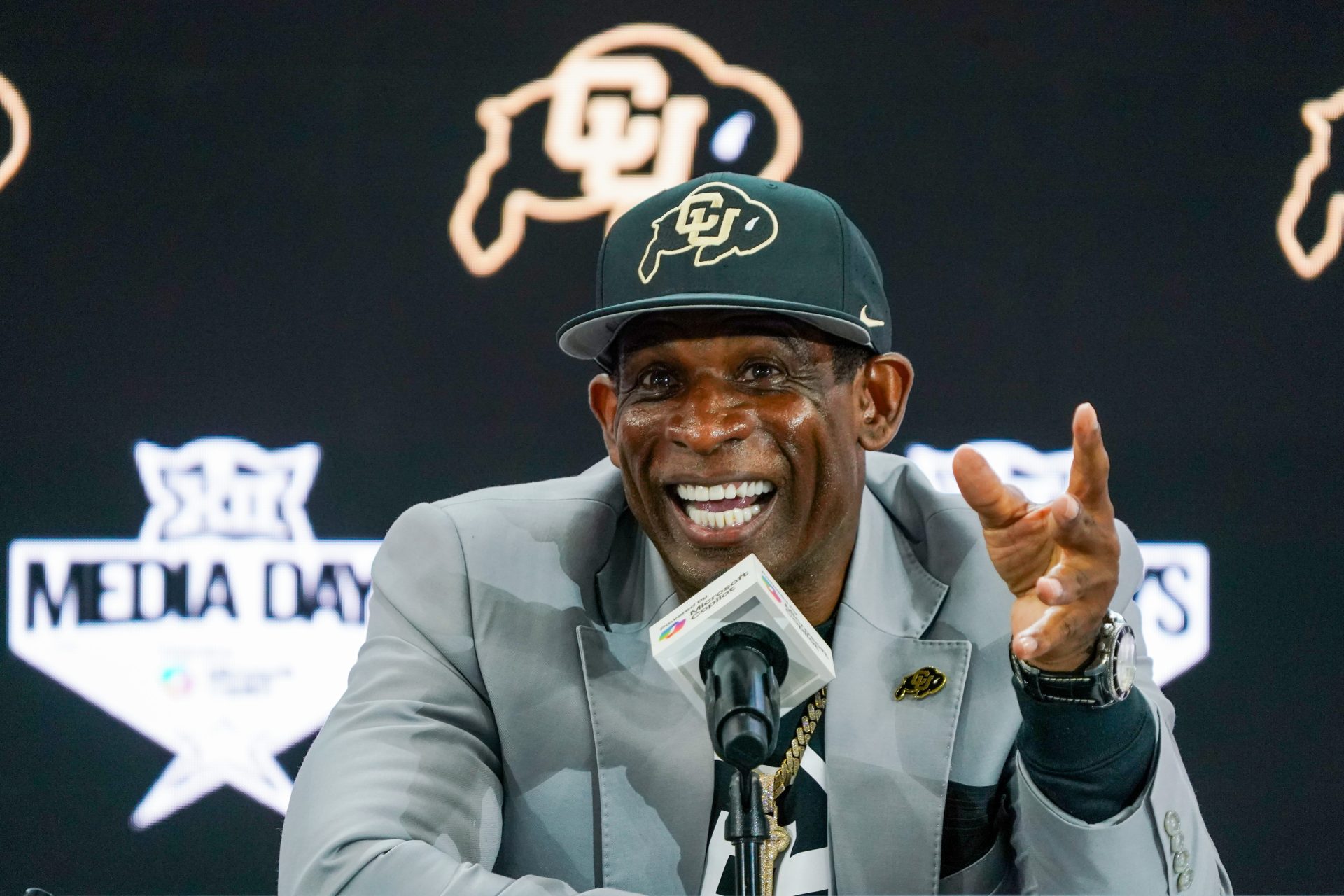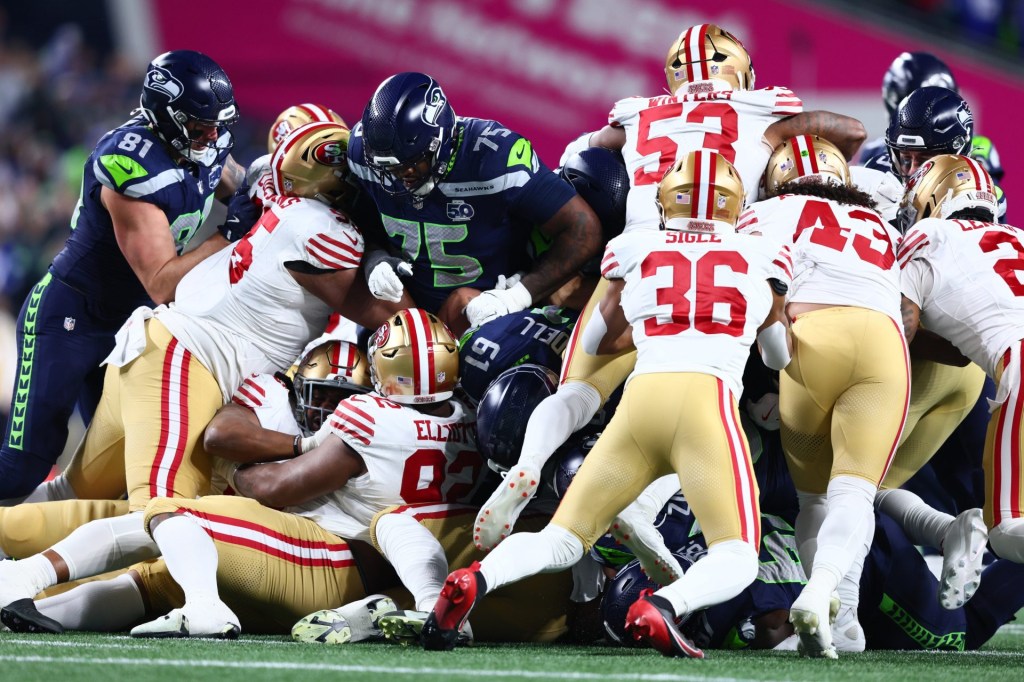There is “a lot of bulljunk going on” in college football, according to Colorado coach Deion Sanders, who criticized the state of the sport at Big 12 media days as the revenue-sharing era has gotten off to a chaotic start.
“Quite frankly, we’re sick of it,” Sanders said Wednesday. “Nobody’s saying it. I’ll say it for everybody.”
What’s the solution? Coach Prime thinks it’s a hard, pro-style salary cap.
“I wish there was a cap,” he said. “Like, the top-of-the-line player makes this, and if you’re not that type of guy, you know you’re not going to make that. That’s what the NFL does. So the problem is, you got a guy that’s not that darn good, but he could go to another school and they give him a half-million dollars and you can’t compete with that. And it don’t make sense.”
Division I athletic departments are allowed to share up to $20.5 million with their college athletes this coming academic year. Most Power 4 schools are expected to allocate 75% of that (roughly $15.38 million) to their football programs. But there are no rules against a school giving 100% of its revenue-sharing money to football players—and more importantly there is no cap on the NIL (name, image, and likeness) money players can receive, although the newly formed College Sports Commission is trying to curb pay-for-play deals that aren’t considered market value.
Sanders lamented schools and agents “doing stuff under the table,” despite the new changes to college sports. “I wish it was truly equality,” he said.
Gundy: Earn It First
Sanders isn’t alone in his desire for a true college football salary cap.
Oklahoma State coach Mike Gundy wants a system akin to the NFL’s rookie wage scale, which limits contract amounts for first-year players.
“We really need to get some guardrails to eliminate the things that are going on from the tampering standpoint, and players that are coming out of high school that are getting way too much money before they’ve ever made a play on game day,” Gundy said. “That’s how I feel personally about it. I’m O.K. with paying the players that are producing. And that’s the NFL model that I believe that some of what we pattern ourselves out of needs to be that.”
Last week, Texas Tech agreed to give 2026 five-star offensive tackle Felix Ojo what his agent said is a three-year, $5.1 million revenue-sharing contract.





![[Subscription Customers Only] Jul 13, 2025; East Rutherford, New Jersey, USA; Chelsea FC midfielder Cole Palmer (10) celebrates winning the final of the 2025 FIFA Club World Cup at MetLife Stadium](https://frontofficesports.com/wp-content/uploads/2026/02/USATSI_26636703-scaled-e1770932227605.jpg?quality=100&w=1024)











